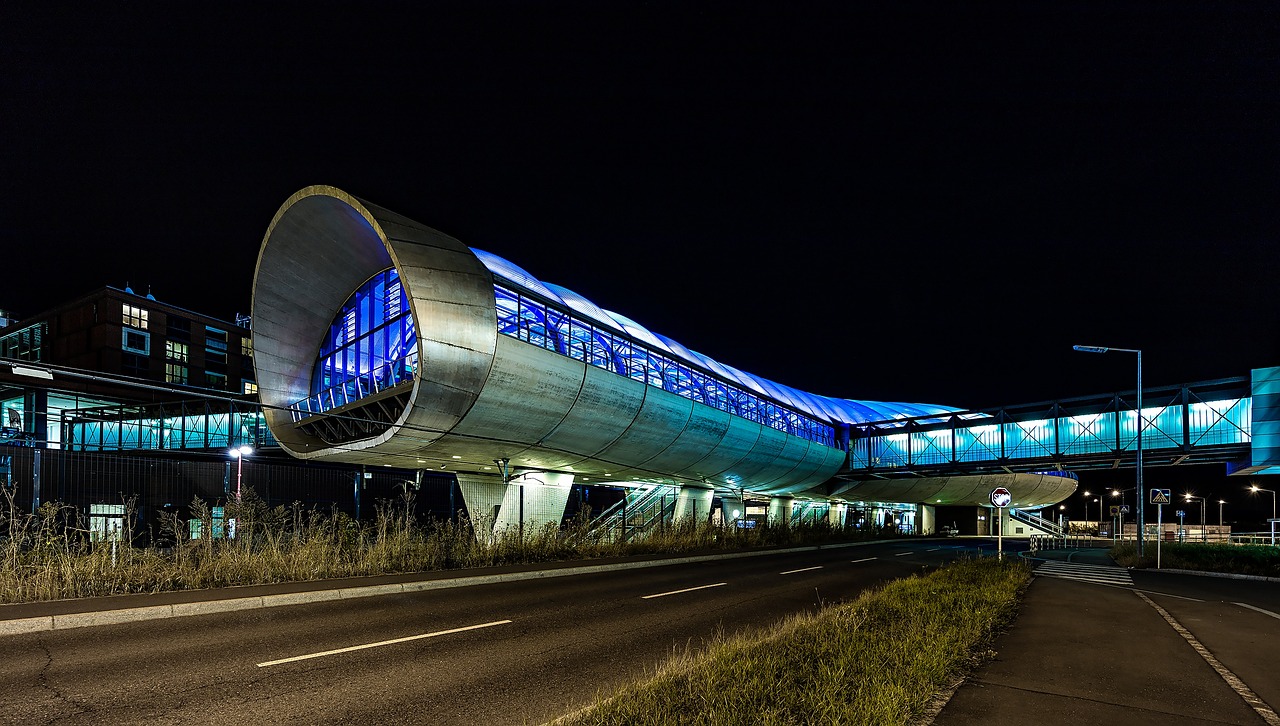Language and Communication: Overcoming Barriers in Luxembourg
Language and communication play a crucial role in our daily lives, enabling us to express our thoughts, share information, and connect with others. In a multicultural and multilingual country like Luxembourg, where several languages are spoken, overcoming language barriers is essential for effective communication and social integration. This article explores the challenges faced in language and communication in Luxembourg and the various strategies employed to overcome them.
Language Diversity in Luxembourg
Luxembourg is a country known for its linguistic diversity. The official languages are Luxembourgish, French, and German. Additionally, English is widely spoken due to its prominence as an international language. The presence of multiple languages creates a unique linguistic landscape that poses both opportunities and challenges for communication.
- Luxembourgish: As the national language, Luxembourgish is the most widely spoken language among Luxembourgers. It is a Germanic language with influences from French and other regional languages.
- French: French is widely used in administration, education, and business sectors. It is also the preferred language for legal documents and official communication.
- German: German is taught in schools and is commonly used in the media. It is particularly important for cross-border communication with neighboring countries.
- English: English is widely spoken and understood, especially among the younger generation and those working in international organizations. It serves as a lingua franca in many contexts.
Challenges of Language Barriers
While Luxembourg benefits from its linguistic diversity, language barriers can still pose challenges in various aspects of daily life. These challenges include:
- Integration: For newcomers to Luxembourg, language barriers can hinder their integration into society. Without proficiency in one of the official languages, it may be difficult to access public services, find employment, or engage in social interactions.
- Education: Language barriers can affect students who are not fluent in the language of instruction. It may impede their academic progress and limit their opportunities for higher education.
- Workplace: In a professional setting, effective communication is vital for collaboration and productivity. Language barriers can create misunderstandings, hinder teamwork, and limit career advancement.
- Healthcare: Clear communication between healthcare providers and patients is crucial for accurate diagnoses and appropriate treatment. Language barriers can compromise the quality of healthcare services and patient outcomes.
Strategies for Overcoming Language Barriers
To overcome language barriers and promote effective communication, Luxembourg has implemented various strategies. These strategies include:
- Language Education: Luxembourg places great emphasis on language education. The education system provides instruction in multiple languages, ensuring students develop proficiency in Luxembourgish, French, German, and English.
- Language Courses: Language courses are offered to newcomers, enabling them to learn one of the official languages and improve their language skills. These courses facilitate integration into society and enhance employment prospects.
- Translation and Interpretation Services: Public institutions, such as government offices and healthcare facilities, provide translation and interpretation services to assist individuals who do not speak the official languages. This ensures equal access to services and information.
- Multilingualism in the Workplace: Many companies in Luxembourg promote multilingualism in the workplace by encouraging employees to learn and use multiple languages. This facilitates effective communication and fosters a diverse and inclusive work environment.
Luxembourg Image 1:

Cultural Exchange Programs:
Cultural exchange programs play a significant role in fostering understanding and bridging language gaps. These programs facilitate interactions between people from different linguistic backgrounds, promoting language learning and cultural appreciation.
- Language Exchanges: Language exchange programs bring together individuals who want to learn a specific language. Participants take turns teaching their native language to others, creating an environment for language practice and cultural exchange.
- Community Events: Luxembourg hosts various community events that celebrate its linguistic diversity. These events provide opportunities for people to engage with different cultures, languages, and traditions, promoting mutual understanding and respect.
Luxembourg Image 2:

Technological Solutions:
Advancements in technology have also contributed to overcoming language barriers in Luxembourg. Various technological solutions are employed to facilitate communication and translation.
- Translation Apps: Mobile applications that provide real-time translation have become popular tools for overcoming language barriers. These apps enable users to translate spoken or written text instantly, making communication more accessible.
- Online Language Resources: The internet offers a wide range of language resources, including language learning platforms, online dictionaries, and language exchange platforms. These resources support language acquisition and provide assistance in overcoming language barriers.
Legal Framework:
Luxembourg has established a legal framework to ensure equal language rights and protection against discrimination based on language.
- Linguistic Equality: The Constitution of Luxembourg recognizes the equality of the official languages and ensures their protection. It guarantees the right to use and learn any of the official languages, fostering linguistic diversity and inclusivity.
- Anti-Discrimination Laws: Luxembourg has enacted laws that prohibit discrimination based on language. These laws promote equal opportunities and protect individuals from language-based discrimination in various contexts, including employment and public services.
Luxembourg Image 3:

Conclusion
Language and communication are essential for social integration, economic development, and cultural exchange. In Luxembourg, the linguistic diversity poses both challenges and opportunities. Through language education, translation services, cultural exchange programs, technological solutions, and a supportive legal framework, Luxembourg strives to overcome language barriers and promote effective communication. By embracing multilingualism and fostering inclusive practices, Luxembourg continues to ensure equal access to services, enhance integration, and celebrate its rich linguistic heritage.
References
– Luxembourg Ministry of Education: education.lu
– Luxembourg Ministry of Foreign and European Affairs: mae.lu
– Luxembourg National Institute of Languages: inll.lu
– Luxembourg Chamber of Commerce: chamber.lu
– Luxembourg Ministry of Health: sante.lu

